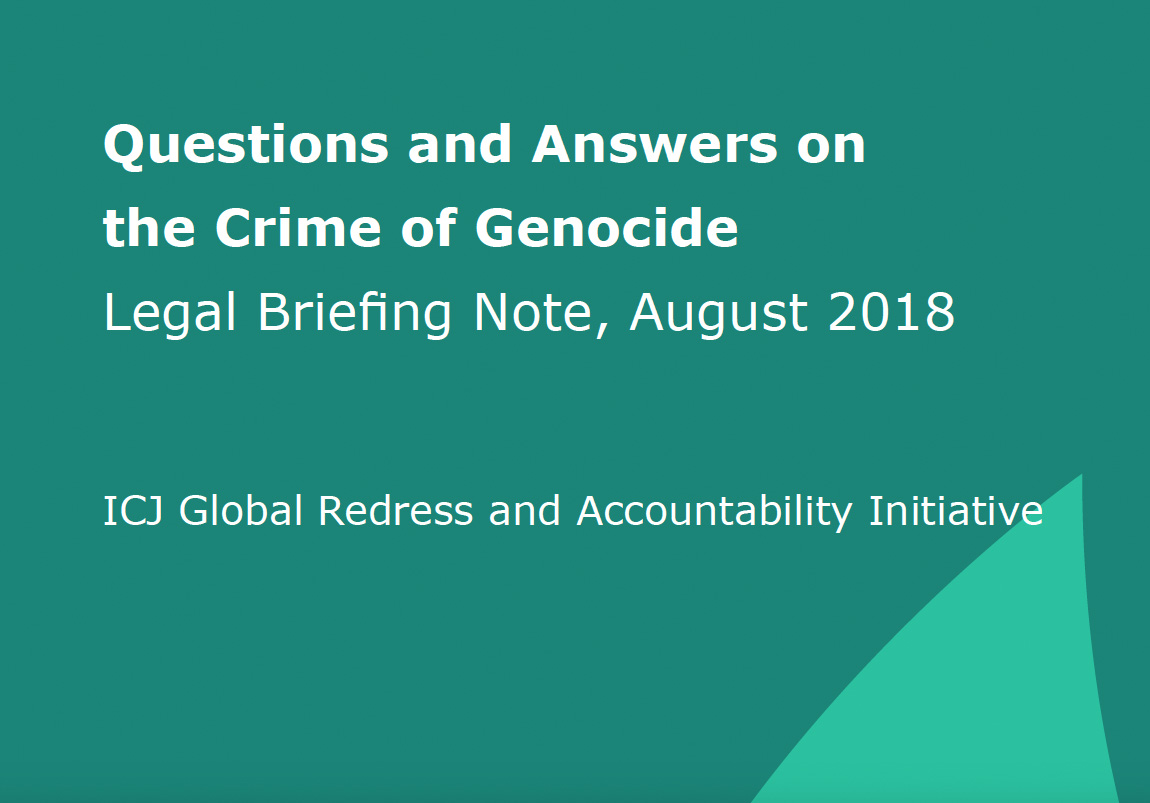Today, the ICJ issued a Questions & Answers legal briefing note setting out what is required to prove genocide and, in particular, the element of “genocidal intent”.
This came as the Independent International Fact-Finding Mission on Myanmar (FFM) called for investigations into crimes under international law including genocide.
Genocide is a particularly heinous crime whose genesis as a crime under international law resides in the extermination policies of the Nazi regime during World War Two.
Under customary international law and the Convention on the Prevention and Punishment of the Crime of Genocide 1948 (“Genocide Convention”), all states have a duty to prevent and punish genocide.
UN agencies and independent experts have reported credible and consistent information that serious crimes have been committed under domestic and international law against Rohingya Muslims in Myanmar, including the crimes against humanity of deportation, rape and murder.
A number of experts and authorities have also suggested that genocide may have been committed and have called for investigations in that respect.
Today, the FFM called for investigations into genocide in the north of Rakhine State, as well as for crimes against humanity and war crimes in Rakhine, Kachin and Shan States.
This announcement followed the United Nations High Commissioner for Human Rights, Zeid Ra’ad al-Hussein’s statement in December 2017 that “elements of genocide may be present.”
And in March 2018, UN Special Rapporteur on the situation of human rights in Myanmar, Yanghee Lee, and UN Special Adviser on the Prevention of Genocide, Adama Dieng, raised the possibility that Myanmar’s treatment of Rohingyas may amount to genocide.
Rohingyas constitute the vast majority of the more than 700,000 persons displaced as a result of security operations commanded by Myanmar’s military in northern Rakhine State, following attacks on police posts by the Arakan Rohingya Salvation Army (ARSA) on 25 August 2017.
Genocide is a complex crime that in many instances may be difficult to establish beyond reasonable doubt in a trial setting.
One area that has proved particularly challenging is the requirement to prove “special intent” or “genocidal intent” which is a critical constitutive and distinctive element of the crime of genocide.
The legal briefing note should assist those who are examining whether genocide has been committed against the Rohingya population and, if so, whether anyone can be held individually criminally responsible.
The Q & A answers the following questions:
1. What is the definition of genocide?
2. What does “genocidal intent” mean legally?
3. What are the similarities and differences between the international crimes of persecution and genocide?
4. How have different jurisdictions approached genocidal intent factually?
5. How relevant is any establishment of the intent element of the underlying crimes against humanity of deportation or forcible transfer to the genocidal intent?
Contact
Kingsley Abbott, ICJ Senior Legal Adviser, t: +66 (0)94 470 1345 ; e: kingsley.abbott(a)icj.org
Download
Universal-Genocide Q & A FINAL-Advocacy-analysis brief-2018-ENG (Q & A in pdf)
Summarized Report (in English)
ICJ Genocide Q&A Summary Final Mar 2019 BURMESE(Q & A, summarized version, in pdf in Burmese)

